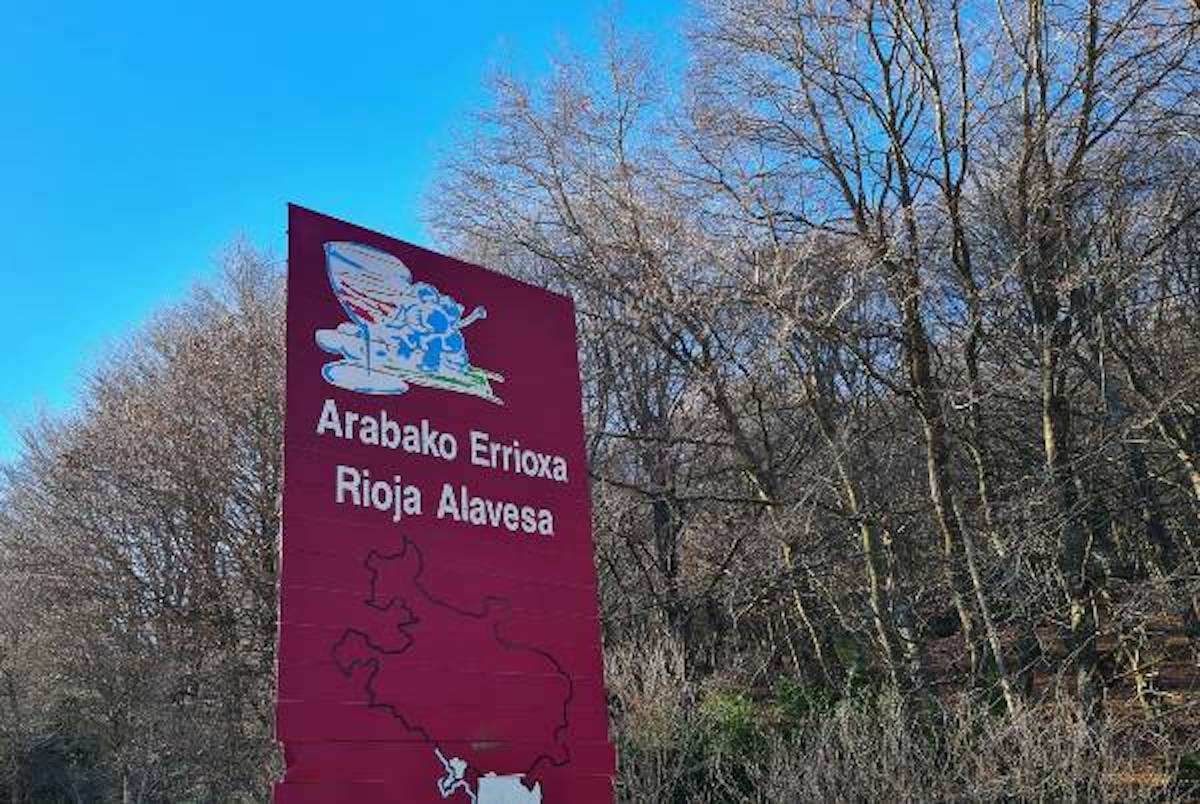It has just been announced the wineries of the Rioja Alavesa who wish to sell the wines produced in the 2023 harvest may do so under the “Viñedos de Álava—Arabako Mahastiak” label.
This is a new chapter in the drawn-out conflict between the wine makers of the Rioja Alavesa with the Denominación de Origen Calificada (DOCa) of Rioja. Though it might be better to say that this conflict was really started by the DOCa, when the winemakers in the Rioja Alavesa simply wanted to clearly identify the specific origin of their wines. Really, they sought nothing more than what others have done, for example in the DOCs of Bordeaux or Burgundy, where specific wineries are identified by their specific areas, while all under the same umbrella.
In mid-2022, the Basque Government granted them the Denominación de Origen Protegida (DOP) to this region, and they have just constituted their Regulatory Committee. This denomination, for the time being, while awaiting final word from Brussels, now permits the sale of wine from the Rioja Alavesa region to be named as such in the Spanish market.
Nevertheless, this constitution is provisional, while waiting to see which wineries wish to join, and therefore determine exactly who will occupy what role on a more permanent basis.
While some would have everyone baselessly believe that this is a “political” decision, it is really a business decision, and a reaction to the evidence that, were something not done, the wineries of the Rioja Alavesa, with higher-quality products and less “industrialization” than those wineries that control the bulk of the wine made in the DOC would eventually drive them out of business. Indeed, this fear is shared by other small wineries in the rest of the DOC, though they unfortunately do not have the strength, organization, and institutional support the ones in Álava have.
The Rioja DOCa, however, is politicking, with a scorched earth policy, just as the media of the La Rioja region (and some media in the Basque Country) try to present this as a political conflict when it’s actually a conflict about business models and business survival. So great is the aversion in this body and the Government of La Rioja that they have asked for permission to change the statutes so that they “exclusively” state where they’re from and to forbid a winery from belonging to both denominations at the same time.
The odd thing about this line of thinking is that there are wineries in La Rioja that combine the Rioja DOCa with the DO of sparkling wine, without that ever having created a conflict. Why doesn’t that cause any problems, but the Viñedos de Álava—Arabako Mahastiak DOP does? Well, on the one hand, politics, and on the other, the fact that the lower-quality wines were in a way protected by the higher-quality ones. That isn’t to say they’re bad wines, but rather that they’re more industrialized and further from the tradition of Rioja wines.
This has a great deal to do with one of the slogans that was most repeated against the creation of the new DOP: “after having grown under the protection of the Rioja DOCa, now they want to leave. And they don’t realize how cold it is outside.”
They forget, or simply don’t know, that the historic core of Rioja winemaking is the Rioja Alavesa, and that the wineries there are making this decision in order to survive. They’ve been fighting for over 100 years to continue to do what the families in that region have been doing for centuries: making good wine. They fought off the blight, which almost completely wiped out the winemaking in the Rioja Alavesa, and then fought against the control and abuse from the wine sellers in Bilbao, who set abusive prices, as we tell here.
Now, they might be right about one thing, that there’s very little difference between the wines grown in Ábalos and the ones grown in Samaniego. Surely, wineries in both towns, which are separated by only 3 km (2 mi), have the same characteristics, the same problems, and the same needs. The difference is that the wineries in Samaniego will have an extra tool to use, should they want to, while the small wineries in Ábalos are going to be left by their government unprotected against the large winemakers working in the Rioja region.
Now those producers are going to have to face a new dilemma, coming to another new crossroad: either they work hard to ensure their wines are given the value they deserve, or they do like all the other grape growers in the region are doing: stop making their own wine and sell their grapes to the big winemakers, thereby returning the region to the dependence and vassalization it was experiencing before.
We’ll leave you with two great articles’ entries: one by wine specialist Tim Atkin and the other published in The Guardian. They both clearly explain what’s going on, from an outsider’s perspective, and make it clear that what has caused this to happen is a desire to maintain quality and to survive as a company. No politics involved at all.
https://aboutbasquecountry.eus/en/2021/05/20/the-guardian-an-easy-to-understand-guide-to-the-conflict-between-the-riojas/
Last Updated on Feb 1, 2023 by About Basque Country





